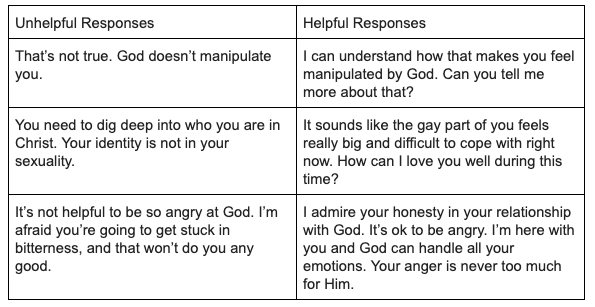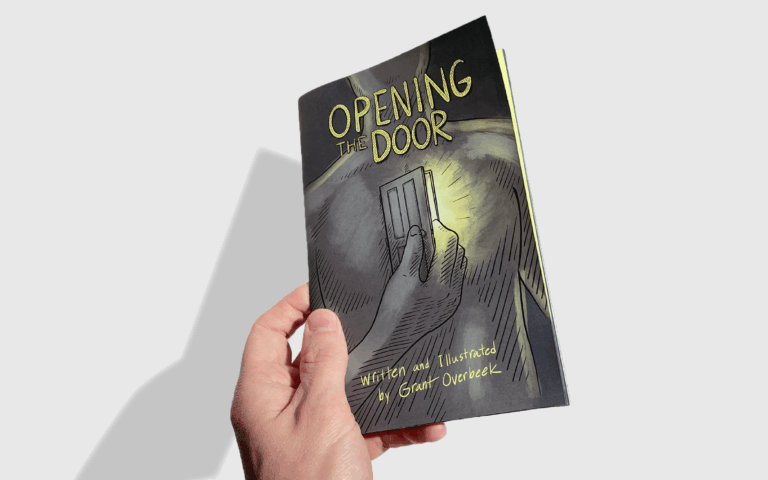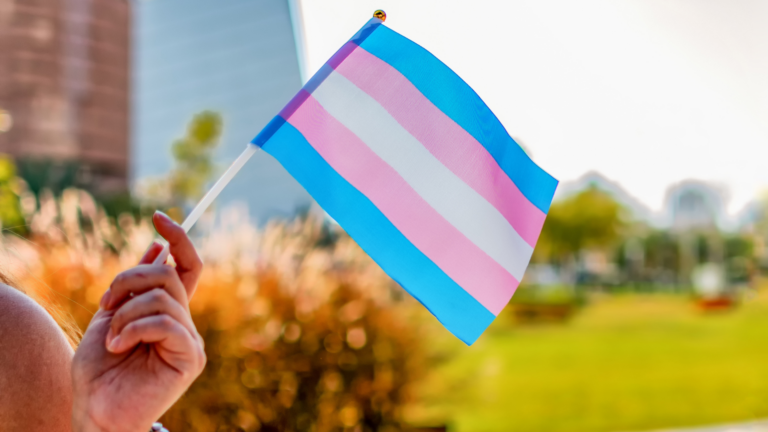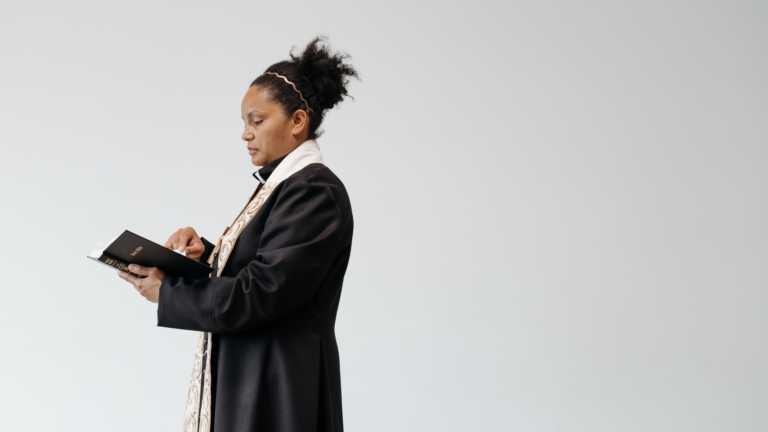This is the second in a year-long blog series by Lindsey Snyder about what pastors and parents need to know to better minister to gay Christian women according to a historic sexual ethic. While the majority of the posts in this series will be about how gay women experience same-sex attraction differently than men, this post applies to both sexes.
Don’t we all long to be free from this weary world? We yearn for a home where suffering and sin has no present or future. We are eager for our imperfections and insecurities to melt away for good. We believe in a “great warm welcome” where we will be celebrated as the holy image-bearers God created us to be. Ironically, an animated Greek god so aptly sings of this longing for completion, whole-heartedness, and belonging in the song “Go the Distance” from Disney’s Hercules:
I will find my way; I can go the distance
I’ll be there someday, if I can be strong
I know every mile will be worth my while
I would go most anywhere to feel like I belong
For many gay Christians, navigating the tension between faith and sexuality is much like trying to find where we belong. Do we belong to a God who tells us there are better ways to satisfy our needs for connection than same-sex romantic relationships? Do we belong to a culture that tells us our longings to be in a same-sex romantic relationship are worthy of pursuit? Some days, when I remember God’s personalized faithfulness and unrelenting kindness, I know “every mile will be worth my while.” Other days, when I see the stream of culture flowing the opposite direction and I’m dealing with persistent longings in my own heart, it is hard to feel like I belong with a God who wouldn’t bless a same-sex marriage.
To “go the distance” and continue pursuing God’s best in sexual stewardship, gay Christians need both to nurture their own relationship with Christ and to be encouraged in radical ways by the body of Christ. Practically, what does it look like to cultivate places where gay Christians like me feel like we belong? How do we create spaces where gay women and men can cultivate a love and desire for Truth while also feeling free to rest in God’s abundant grace?
Here are four ways to nurture an environment of Gospel-centered belonging:
1. Celebrate faithfulness
Carrie, a 60-year-old gay Christian friend who is committed to a historic sexual ethic, recently told me, “I thought things would get easier as I got older. Hormones are supposed to diminish over time, right? But for me, the power of my attractions has gotten progressively stronger over the years, and thus it has been progressively harder to live chastely, not easier. If I had been aware of this possibility and been able to mentally/emotionally/spiritually prep for it, I think I would have stumbled less than I have. ”There are some who would read the above statement and declare that Carrie has given up on any chance of God taking away her same-sex attraction and that she is not living in the truth of the Gospel. Others would suggest that she is unnecessarily torturing herself – that love is love, and she should pursue a romantic relationship with a woman. But I look at this friend’s life and her story and see Christ. Confounding both theological extremes, Carrie has stood firm in her faith, living honestly amidst an onslaught of fierce messages arising from either side . . . just like Jesus did.
When is the last time you heard someone like Carrie commended for her faithfulness? Often, our churches reserve praise for people with whom we are comfortable; people whose stories of redemption are wrapped up with a pretty bow. We look up to heroes of the faith who seemingly rarely doubted God’s existence or goodness. We commend those who are content in all circumstances because they have accepted that all they need is God and therefore rarely if ever struggle with bitterness. We honor those who refused to deny Christ, even unto death. Don’t get me wrong, here. It is a good thing to be inspired and encouraged by such unwavering devotion to Christ!
However, gay Christians pursuing faithfulness to the historic sexual ethic are often the antithesis of the above paragraph. No wonder they so often feel like they don’t belong in church. Gay Christians are uncomfortable with the cards they’ve been dealt. Their stories of redemption don’t run in a straight line. They doubt God and wrestle with Him, sometimes for a lifetime. They are discontent with the status quo of the Church’s response toward LGBT+ people. They are people like Carrie. They are people like me.
As a gay Christian woman pursuing faithfulness to the historic sexual ethic, it is people like Carrie who have drawn me closer to Christ. It’s the people who suffer and celebrate within the tension that inspire me most to keep going the distance and fighting the good fight of faith.
2. Honor lament
Jesus was a “man of sorrows” who didn’t shy away from asking for the impossible in His desperation. Make clear to your gay friends that you will not scorn them for the sadness their sacrifice ignites. Don’t shy away from their expressions of longing that God would bless same-sex romantic relationships, even as they remain convinced that He will not. Instead, embrace them in their fervency in praying, like our Savior, “Father, if you are willing, please take this cup of suffering away from me. Yet I want your will to be done, not mine” (Luke 22:42).
Instead of pushing the topic under the rug, consider instating a church-wide lament each June (gay pride month) for the way the Church has de-humanized gay people in the past and present. This could include a corporate reading, a prayer, and a call to action toward a service project ministering to gay people in your community.
3. Permit doubt and anger
Don’t make doubt and anger the bad guys. David, Job, Jonah, and so many more biblical heroes of the faith were fraught with doubt, anger, and bitterness toward God at times. Of course we don’t want people to stay bitter all their lives, but what helped move me out of bitterness was when my friends let go of fear and trusted that the Holy Spirit had me on a unique and sacred journey into deeper faith.
Allow us to rage against God and to weep bitter tears. God will confront each of us in time, in the way He knows best. He may use you to reveal truth, but it almost certainly won’t be in the way you plan it to be. Don’t be like Job’s friends.
Here are a few examples of unhelpful and helpful responses to doubt and anger:
4. Embrace mystery
From my limited perspective, acknowledging mystery is one of the most helpful ways to communicate that Christians who experience same-sex attraction belong in the Church. To many of us, it doesn’t make complete sense why we cannot pursue a Jesus-loving, committed, and faithful relationship with the same sex. We know the go-to verses about gay sex. We are often familiar with arguments that Christian marriage must be open to procreation and faithfully serve as a metaphor for Christ’s relationship with the Church in its sexual difference. But there is still an element of mystery . . . once in a while, it is good to hear an acknowledgement from our straight friends: “I don’t know why God made it this way. Not everything makes sense and this journey can be painful. But I’m here with you and love you no matter what, and I know God sees and loves you too. I will always fight with you to see the beauty and hope of the Gospel!”
So – practically, what does it look like to cultivate places where gay Christians like Carrie and myself feel that we belong? How can churches nurture an environment where gay people can cultivate a love and desire for Truth while also feeling free to rest in God’s grace?
This list is far from exhaustive, but four good ways churches can nurture such an environment are by recognizing faithfulness, honoring lament, permitting doubt and anger in the faith, and acknowledging the mystery of God’s design.
Until next time, I leave you with these lyrics from the Michael Bolton rendition of “Go the Distance”:
Down an unknown road to embrace my fate
Though that road may wander, it will lead me to you
And a thousand years would be worth the wait
It might take a lifetime but somehow I’ll see it through
And I won’t look back, I can go the distance
And I’ll stay on track, no, I won’t accept defeat
It’s an uphill slope but I won’t lose hope
‘Til I go the distance, and my journey is complete
I will search the world, I will face its harms
‘Til I find my hero’s welcome, waiting in your arms
To learn more about how your church can become a place where gay Christian women thrive according to God’s wisdom, contact us at info@equipyourcommunity.org or check out the training our partner churches receive.







